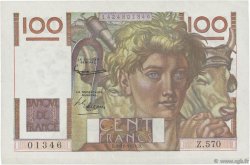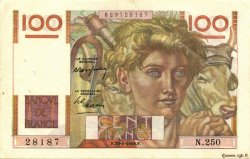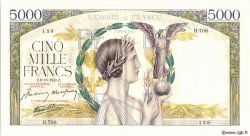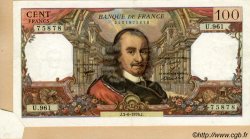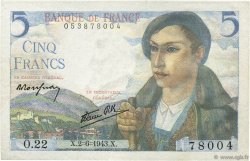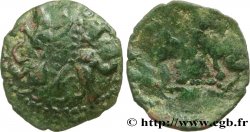Live auction - 4100217 - 500 Francs SCIENCE ET PHILOSOPHIE type 1931 Non émis FRANCE 1940 NE.1931.01a
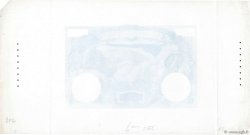
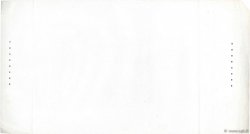
You must signin and be an approved bidder to bid, LOGIN TO BID. Accounts are subject to approval and the approval process takes place within 48 hours. Do not wait until the day a sale closes to register. Clicking on "BID" constitutes acceptance of the terms of use of cgb.fr private live auctions.
Bids must be placed in whole Euro amounts only. The sale will start closing at the time stated on the item description; any bids received at the site after the closing time will not be executed. Transmission times may vary and bids could be rejected if you wait until the last second. For further information check the Live auction FAQ
All winning bids are subject to a 18% buyer’s fee.
All winning bids are subject to a 18% buyer’s fee.
| Estimate : | 2 000 € |
| Price : | 1 300 € |
| Maximum bid : | 1 500 € |
| End of the sale : | 10 January 2017 16:45:12 |
| bidders : | 1 bidder |
Face Value : 500 Francs SCIENCE ET PHILOSOPHIE type 1931 Non émis
Date: 19 octobre 1940
Period/Provinces/Banks Banque de France, XXe siècle
Catalogue reference : NE.1931.01a
Additional reference : P.-
Detailed grade description : Fente
Commentary
ÉPREUVE du verso en bleu clair sur grande feuille. Ce premier projet de la Banque de France pour la création d'un billet de 500 F polychrome est initié vers 1910 à la suite des projets de 50 F et 100 F polychromes déjà confiés à Luc Olivier Merson.
Ce projet n'est actuellement connu que par une publication de la Banque de France présentant les maquettes datées de 1912 ainsi que des publications dans la presse en Janvier 1914.
L'un de ces articles (Petit Parisien du 27 Janvier 1914) donne une description du verso:
‘’au verso apparaissent deux figures assises ; le travailleur de la terre tenant un aiguillon et, lui faisant face, une Cérès moderne, armée de la faucille qui vient de coucher la moisson. Au centre on aperçoit des collines et des champs labourés, que traversent des bœufs achevant de tracer les sillons ; une falaise coupée dans le roc ; enfin, au loin, la mer bleue sur laquelle passe une voile. L'entourage ovale est formé d'une guirlande de fruits de France et le cadre dessine une fine broderie bleue Renaissance.‘’
Ce projet sera mis en réserve, mais cette épreuve, retrouvée dans les archives du graveur G. Regnier, datée du 19/10/1940, démontre que ce projet a été retravaillé durant la deuxième guerre mondiale.
Cette épreuve est le seul document connu pour cette vignette. Sur feuille 33Cm x 17,5cm. En bas au crayon 4eme état 19-10-40.
PROOF of the back in light blue on a large sheet. This first project of the Bank of France for the creation of a polychrome 500 F note was initiated around 1910 following the projects of polychrome 50 F and 100 F already entrusted to Luc Olivier Merson.
This project is currently only known through a publication from the Bank of France presenting the models dated 1912 as well as publications in the press in January 1914.
One of these articles (Petit Parisien of January 27, 1914) gives a description of the back: ''on the back appear two seated figures; the worker of the earth holding a goad and, facing him, a modern Ceres, armed with the sickle who has just laid the harvest. In the center we see hills and plowed fields, crossed by oxen finishing tracing the furrows; a cliff cut into the rock; finally, in the distance, the blue sea over which a sail passes. The oval surround is formed by a garland of French fruits and the frame draws a fine blue Renaissance embroidery. ''This project will be put on hold, but this proof, found in the archives of the engraver G. Regnier, dated 19/10/1940, shows that this project was reworked during the Second World War..
This proof is the only known document for this vignette. On sheet 33cm x 17.5cm. Bottom in pencil 4th state 19-10-40
Ce projet n'est actuellement connu que par une publication de la Banque de France présentant les maquettes datées de 1912 ainsi que des publications dans la presse en Janvier 1914.
L'un de ces articles (Petit Parisien du 27 Janvier 1914) donne une description du verso:
‘’au verso apparaissent deux figures assises ; le travailleur de la terre tenant un aiguillon et, lui faisant face, une Cérès moderne, armée de la faucille qui vient de coucher la moisson. Au centre on aperçoit des collines et des champs labourés, que traversent des bœufs achevant de tracer les sillons ; une falaise coupée dans le roc ; enfin, au loin, la mer bleue sur laquelle passe une voile. L'entourage ovale est formé d'une guirlande de fruits de France et le cadre dessine une fine broderie bleue Renaissance.‘’
Ce projet sera mis en réserve, mais cette épreuve, retrouvée dans les archives du graveur G. Regnier, datée du 19/10/1940, démontre que ce projet a été retravaillé durant la deuxième guerre mondiale.
Cette épreuve est le seul document connu pour cette vignette. Sur feuille 33Cm x 17,5cm. En bas au crayon 4eme état 19-10-40.
PROOF of the back in light blue on a large sheet. This first project of the Bank of France for the creation of a polychrome 500 F note was initiated around 1910 following the projects of polychrome 50 F and 100 F already entrusted to Luc Olivier Merson.
This project is currently only known through a publication from the Bank of France presenting the models dated 1912 as well as publications in the press in January 1914.
One of these articles (Petit Parisien of January 27, 1914) gives a description of the back: ''on the back appear two seated figures; the worker of the earth holding a goad and, facing him, a modern Ceres, armed with the sickle who has just laid the harvest. In the center we see hills and plowed fields, crossed by oxen finishing tracing the furrows; a cliff cut into the rock; finally, in the distance, the blue sea over which a sail passes. The oval surround is formed by a garland of French fruits and the frame draws a fine blue Renaissance embroidery. ''This project will be put on hold, but this proof, found in the archives of the engraver G. Regnier, dated 19/10/1940, shows that this project was reworked during the Second World War..
This proof is the only known document for this vignette. On sheet 33cm x 17.5cm. Bottom in pencil 4th state 19-10-40








 Report a mistake
Report a mistake Print the page
Print the page Share my selection
Share my selection Ask a question
Ask a question Consign / sell
Consign / sell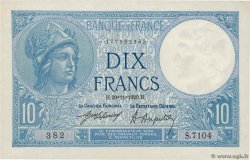
 Full data
Full data